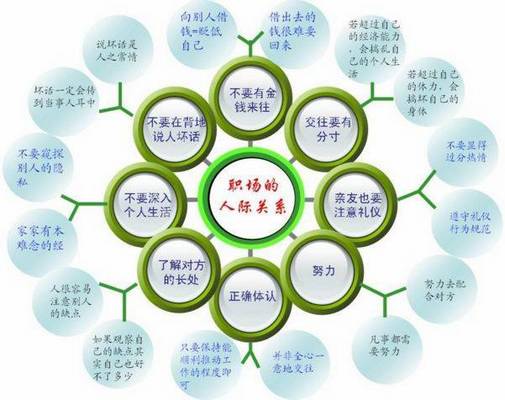不同的时态(一般式、进形式、完成式、将来式),不同的语态(主动、被动),不同的语气(祈使、陈述、虚拟),不同的结构(肯定、否定、疑问),以及说话者本

身的态度或刊发(命令、请求、愿望、可能等),所有这些都要借助于助动词和情态动词表达出来。
助动词一般没有词意,不能单独作谓语动词,除非省略句中。他们只参加时态、语态、语气或否定、疑问结构。情态动词有词义,可以用来表示说话者的语气和态度。主要的助动词和情态动词如下表:
一、助动词
助动词的主要用法助动词一般没有词意,不能单独作谓语动词。其作用在于帮助构成各种时态、语态、否定、疑问等。
(一)助动词be(am, is, are, was, were, being, been)的用法
1、 be后跟现在分词构成进行时态。
Who is playing the violin?谁在拉小提琴?
2、be后跟过去分词构成被动语态。
He was asked to do the work. 有人要他干这件工作。
3、be 后跟不定式作谓语,有如下几种情况:表示计划、安排将要发生的事;表示指示、命令,否定式表禁止;表示义务、责任等,同should;用来表示命运或注定等。
I'm to have supper with John this afternoon.
今天下午我要与约翰一起吃晚饭。
You are not to enter the room without permission.
未经允许你不能进入房间。
What is to be done?该干什么。
He was to regret the decision.
他有一天会后悔做出这一决定的。
(二)助动词have(has, had, having)的用法
1、助动词have可以构成完成时或完成进行时
He has been a doctor for 10 years. 他当医生十年了。
2、和不定式构成谓语,表示客观上不得不做的事情。
-Do we missed the train?我们得立刻工作吗?
-No. We don't have to. 不,不必了。

3、do(does, did) 的用法
(1)构成疑问句或否定句
How did you know about it?
你是怎样知道这件事的。
He does not smoke.
他不抽烟。
(2)用于肯定句中加强语气,意为:真的、确实、务必。
He did tell that.
他的确告诉了此事。
Do come and see us.
一定来看我们。
(3)代替前面刚出现的动词,避免重复。
-You like popular music, don't you?
你喜欢流行音乐,是吧?
-Yes , I do. 是的,我喜欢。
He speaks French as fluently as she does.
他讲法语和她讲的一样流利。
(4)用于倒装句中。
Never did he pay attention to my words.
他从不注意我的话。
Only then did I understand the importance of English.
只是那时,我才了解到英语的重要。
(5)构成否定的祈使句。
Don't be so careless. 不要那么粗心。
Don’t you do that again.以后不要再做那样的事。
4、shall(should)和will(would) 的用法
(1)shall(should)用于第一人称的将来时中,单纯表示将来
I shall think it over. 我要好好考虑一下。
I rang up to tell her that I should leave for London.
我打电话告诉她我要去伦敦。
(2)will只用于第二、第三人称的将来时态中
You will have an English test tomorrow.
明天你有英语小测验。
He wanted to know when

you would finish the writing.
他想知道你何时完成写作。
二、情态动词
情态动词表示说话人对某一动作或状态的态度,认为“可能、应当、必要”等等,但本身意义不完全,不能单独作谓语,必须和其他动词一起构成谓语。除ought, used, have后跟不定式外,其他情态动词一律跟动词原形。情态动词主要有:can/could, may/might, must, ought to, used to, need, dare, shall/should, will/would, have to等。
(一)情态动词的特征
(1)没有人称和数的变化。
(2)大部分情态动词有过去式:
(3)少部分情态动词没过去式或者说过去式与原形相,used to 只有过去式形式。
(4)大多数情态动词后面还可跟动词的进行时、完成时和被动式形式:
(二)情态动词表示可能与推测
(三)“情态动词+have done”用法一览表
(三)情态动词表示某一特定的语气
1、can用于否定句、疑问句和感叹句中,表惊异怀疑、不相信等态度。
Where can they be now?他们现在能在哪儿呢?
What can he mean?他会是什么意思?
2、must表示与说话人愿望相反及不耐烦,意为:偏要。
Why must it rain on Sunday? 偏要在星期天下雨, 讨厌!
3、may表祝愿(不能用might)。
May all our dreams come true.愿我们梦想成真。
May that day come soon. 愿这一天早日到来。
4、should与why, who, how 等连用, 表示说话人对某事不理解、感到意外、惊异等意思,意为:竟会。
Why should you be so late today?你今天怎么来的这么晚?
I don’t know why you should think that I did it. 我真不明白你凭什么认为这件事使我干的。
(四)情态动词表示委婉地语气
1、can和could
表比较委婉客气地提出请求。这时could和can没有时间上的差别,只不过用could比用can显得更加委婉客气。
-Could /Might I borrow your dictionary? 我把字典借给我可以吗?
-Yes, of course you can/may. 当然可以。
No, I’m afraid not.
注意:回答允许时肯定的回答用can,不能用could/might。
2、may和might表示许可或征询对方许可。
May I watch TV after supper?晚饭后我可以看电视吗?
He said that I might use the telephone.他说我可以用电话。
注意:征询许可时,might比may更恭敬有礼。may的否定形式为may not,但表示“不可以”、“阻止”等意思时常用must not(musn't)代替may not。
3、should用于使一个直接或直率的陈述变得婉转、谦逊,意为:可, 倒。
I should think he would like to go.我倒是认为他愿意去
I should hardly think so.我倒并不那样想。
You are mistaken, I should think so.要我说,你是搞错了。
(五)情态动词的基本用法
1、can和could表能力
(1)意为“能够会”,表示体力或脑力等方面的能力
Can you ride a bike?你能骑自行车吗?
I could run faster then. 我那时能跑得更快一些。
(2)当can和could表示能力时,有时可以用be able to替换,could表过去,can表现在,有时也可表将来,但不能与will, shall等助动词连用;be able to可以用于将来、完成等时态。
With his help, we shall be able to build the house.在他的帮助下,我们将能够建造房屋了。
(3)当我们要强调过去确实使用了某种能力时,要用was(were)able to,而不用could。was able to 表示“设法干成某事”,即succeed in doing sth.或manage to do sth.而could只表示“具备某种能力”。
He is such a good swimmer that he was able to save the two boys from drowning the other day.他是一位游泳健将,因此前些日子他救上了两名溺水男孩。
2、must和have to
(1)must表示“必须”,“应该”。否定式must not(mustn't)表示“不应该”,“不许可”,“不准”,“禁止”等。在回答带有must的问句时,否定式常用need not(needn't)或don't have to 表示“不必”,而不用must not (mustn't)。
The work must be finished as soon as possible.这件工作必须尽快完成。
You mustn't speak like that. 你不能那样说话。
(2)have to表示“必须”,“不得不”,在这个意义上与must与很接近,但must表示的是说话人的主观看法,而have to 表示的却是客观需要。have to 有更多的时态形式:现在时,过去时,将来时等,而must只有现在时形式。have to 不能代替表推测的must,但在虚拟条件句中用had had to+动词原形表示与过去相反的情况。
I have to go now. 我得走了。(客观需要)
I must go now. 我必须走。(主观看法)
I shall have to go to school tomorrow. 明天我得去上学了。
You must be joking.你一定是在开玩笑。(不能用have to)
3、shall
(1)用在疑问句中,用来征求对方意见或请求指示或向对方提出建议,用于第一、三人称。
Shall we start the meeting now?我们现在开会好吗?
Shall those books be sent over to you at once?那些书立即给你送过来吗?
(2)用于第二、三人称,表示说话者的意图、警告、命令、决心、许诺等, 主语的行动受讲话者支配。意为:必须, 应, 可
He shall suffer for this. He shall pay you what he owes you. 他必将自食其果,他欠的债一定得还。(威胁)
He shall have a bicycle for his birthday.他可以得到一架自行车作为生日礼物。
(3)在问句中, 征 询对方对于主语行动的意见(提供帮助, 提出建议、要求给予指示和征求意见), 主要用于第一、三人称。意为:… 好吗? 要不要…?
Shall I carry your bag ?我帮你拿手提包, 好吗?
Shall he come to see you ? 要不要他来看你?
(4)用于第三人称, 在条约、规定、法令等文件中表示义务或规定。意为:应, 必须
No reader shall remove a book from the library without consent of the librarian.
非经管理员同意, 读者不准把书带出图书馆。
4、、should
(1)表“劝告、建议”时,可译成“应该”,这时可用ought to替换。
You should keep your promise.你应该遵守诺言。
(2)表示委婉陈述自己的意见。
I should think you are right. 我想你是对的。
I should advise you not to go now. 我劝你现在别走。
(3)表示惊异赞叹、忧虑、惋惜、欢欣、不满等情绪。
Why should you think so?你为何这样想呢?(不满)
It's strange that it should be so hot today. 很怪,今天怎么这么热。(惊奇)
(4)表推测
意为“可能,该”,表示对现在情况、将来情况的某推测。
They should be home by now. 他们现在应当到家了。
The book you need should be in our library. 你需要的那本书我们图书馆应该有。
5、ought to
(1)ought没有人称或时态的变化,后跟带to的不定式。常译作“应该”,“应当”等,和should同义,只是口气稍重一些。其否定式为ought not to (oughtn't to ),疑问式为Ought I /you to…?
You ought to start at once你应该立刻出发。
(2)表示没有履行过去的义务时,用“ought to +完成时。
You ought to have told me about this earlier. (But you didn't)你本来应该早一点把此事告诉我。(但没有)
6、used to
used to只有一种存在形式,一般过去式。具体用法如下:
(1)在肯定句中,表示现在己经不再发生,不复存在的过去的行为和存在的状态。
He used to smoke 20 cigarettes a day. 他过去每天抽20支烟。
There used to be a building ther(5) 那里曾经有座大楼。
(2)在疑问句、否定句或强调句中,可以有两种形式:
Usedyou to go to work by bike?
Did you use to go to work by bike?你过去常骑车上班吗?
He usedn't to smoke as much as he does now.
John used to be very fat, didn't he/usedn't he?约翰曾经很胖,是吗。
—Used you to live in Shanghai?—你过去曾住在上海?
—Yes, I did/ I used to. —是的。
(3)used to 与would的区别:
情态动词used to 和would都可以表示过去的习惯性动作,但有下列不同点:
(1)used to 表示确定的过去时间,不需与确定的过去时间连用,而would一般与时间状语连用。used to 含有与现在相比较的意思,而would没有。
He used to get up early. 他过去常常早起。(现在不早起了)
The old man would go to the park every day to have morning exercises. 那位老人以前每天都去公园晨练。(没有与现在相比较的意思)
(2)used to 指过去反复发生或持续发生的动作,而would仅指地去反复发生的动作,不指持续发生的动作;另外,used to 即既表动作还表状态,而would只表动作不表状态,因此下列句中的used to 不能用would代替。
People used to think that the earth was flat. 人们过去认为地球是平的。
She used to be very nervous in the exam. 她以前考试常常很紧张。
(3)used to 表客观事实,would则表示一种意愿。
When he lived by the sea, he used to suffer diseases. 他住在海边时,经常有病。(used to 不能换成would)
There used to be a small village here.这里曾经有一个小村庄。
7、dare
dare作情态动词表示“敢”,主要用于否定句、疑问句和感叹句,无词形变化,单数第三人称不加-s。
(1)通常用于否定句和疑问句,其用法同其他情态动词。
She daren't even look out. 她甚至不敢向外看。
Dare you go to school by yourself?你敢独自一人去上学吗?
How dare you say I am unfair?你怎么敢说我不公平!
I dare not sleep in that room again.我再也不敢睡在那房间了。
(2)dare在句子含有否定意义或疑问意义时;在简略答语中;状语从句中。也用于肯定句中。
I hardly dare think of it. 我简直不敢想这事。
He asked me whether I dare swim across the river. 他问我是否敢游过河。
—You daren't climb that tree, dare you?你不敢爬那棵树,对吗?
—Yes , I dare. 不,我敢。
I won't allow you to swim across the river, even if you dare do it. 即使你敢,我也不愿你游过河去。
7、need
(1)表示 "必要;必须",通常用于否定句和疑问句
Need he work so hard? 他需要这么用功吗?
You needn't worry about it. 你不必为此担忧。
I hardly need say how much we missed you. 不必说我们多么的想念你。
(2)在肯定句中,它被must或have to 取代。
—Need I come? —我需要来吗?
—Yes, you must/have to. —需要。
You needn't see him, but I must /have to. 你不必去看他,但我必须去。
(3)“need+一般式”,通常表现在和未来,有时也可指过去。
She need not come. 她不必来。(现在或将来)
We were told that we needn't do that. 我们被告知不必做那事。(过去)
8、will
(1)表意志、意愿、允诺,可用于多种人称。
I will tell you all about it. 我愿告诉你一切。(意愿)
(2)用于第二、第三人称的疑问句中,表询问或请求。
I'm going to the library. Will you go with me? 要去图书馆,你愿与我一起去吗?(询问)
Will you give him a message when you see him? 见到他时,请给他个信好吗?(请求)
(3)用于第二、三人称表推测。
That man with the book will be Mr. mith.拿书的那个人可能是史密斯先生。
(4)有时表示一种习惯性动作,常用于第三人称。
Fish will die out of water. 鱼离开水就不能活。
11、would
(1)would是will的过去式,表示过去时间的意志、意愿、决心,用于各种人称。
They said they would help us. 他们说他们愿意帮助我们。
(2)would表示说话人的意愿或向对方提出请求,语气比will婉转,仍指现在时间。
Would you like some bananas?你喜欢吃香蕉吗?
(3)表示过去习惯发生的动作(与used to有区别,见used to)。
The old worker would often go to the park to play chess. 那位老工人过去常去公园下棋。
She would come to see me now and then. 她时常来看我。
(4)表示推测。
You would be about 10 years old then. 你那时大概10岁左右。
12、had better(best)+动词原形,would rather+ 动词原形+than +动词原形,would rather+虚拟式丛句
①had better(best)+动词原形意为“最好”,否定形式had better not,疑问句把had放在主句前。这个结构用于现在时或一般将来时,通常用于所有人称。
We'd better not invite him.我们最好不要邀请他。
Better have the operation right now.你最好还是现在就动手术。
Had he better set off at once? 他马上动身的好吗?
②would rather意为“宁愿,宁可”,后接动词原形,否定式为would rather not, 疑问句把would放在主语前。Would rather…than 意为“宁愿……而不”,than后面接动词原形(不带to),would rather 后面接从句时要用虚拟式。
He would rather die than surrender. 他宁死不投降。
I would rather he stayed at home.我宁愿他呆在家中。
(六)“情态动词+be doing”的用法
1、推测或评论某动作是否正在进行
Our teacher must be correcting our exam papers.我们的老师想必在批改试卷。
He can't be working now.他不可能正在工作。
We may be playing tennis at nine tomorrow.明天九点我们可能在打网球。
2、表示“即将;将要”这类意思
I must be going now.我现在必须走了。
She may be leaving tomorrow.她可能明天离开。
3、用来表示"老是做某事"
If you really want yourself to be in good health, you must not always be smoking so much.如果你想要一个好的身体,就不该老是抽这么多烟。
(七)习惯表达
1、cannot… too/ enough表示“无论怎样…也不过分”“越…越好”。
You cannot be careful enough when crossing the street.过马路时越小心越好。
2、can’t but do 表示“不得不、只好”。
I can’t but stay at home.我只好呆在家里。
3、may well+动词原形,表示“很有可能,完全能”。相当于be likely to do。
He may well be proud of his son.他大可为儿子高兴。
4、“may as well+动词原形”表示“最好,满可以,倒不如”,相当于had better.
We may as well stay where we are.我们最好呆在原地。
You may as well tell me the truth.你还是把真相告诉我为好。
三、虚拟语气
虚拟语气是中学英语语法中较难的部分,新大纲对此不作要求,近年高考没有考查它在条件句中的用法,但高中英语新教材中出现了不少使用虚拟语气的句子,高考在考查情态动词时有涉及虚拟语气的题目,所以了解虚拟语气的用法是必要的。
虚拟语气是谓语动词的一种特殊形式,用来表达假设、主观愿望、猜测、建议、可能或空想等非真实情况。
(一)虚拟语气在非真实条件从句中的用法
(二)错综时间条件句
有时主句和从句的谓语动词并不是相互呼应,这种条件句叫做混合条件句,又称为错综时间条件句。
If the doctor hadn't come, the patient would be dead by now.要是大夫不来的话,病人现在就会死去了。(条件句过去-主句将来)
If China had not been liberated, the working people would still be leading a miserable life.如果中国没被解放,劳动人民现在仍会过着悲惨的生活。(条件句过去-主句现在)
If Mary should arrive today, she must have started in future.如果玛丽今天到的话,那她一定在三天前就动身了。(条件句现在-主句过去)
(三)含蓄条件句
所谓含蓄条件句,是指if条件从句没有被明确表达出来的条件,具体分为下列几种情况:
1、通过不定式短语表示条件
You would be a fool to refuse his offer. (=If you should refuse his offer, you would be a fool.) 要是你拒绝他的建议,就太傻了。
It would be a mistake not to help him. (=It would be a mistake if we did not help him.)如果不帮助他那就会是一个错误。
2、通过介词短语表达条件
用介词without(或with no), but for 等表示“如果没有”。
Without electricity, human life would be quite different today.要是没有点,人类今天生活将会大相径庭。
But for the storm I would have arrived much earlier. (=If it had not been for the storm…)要不是那场暴雨,我早就到达了。
3、通过连词otherwise, or, but, but that, though, once等表达条件
She came to town yesterday, otherwise/or I would not have met her. (otherwise/or =if she hadn't come…)昨天她到城里来了,不然她就不会遇见她了。
I would have attended the meeting, but I have been too busy. (=…if I had not been too busy)我本来要参加会议的,只是太忙了。
4、通过分词短语表达条件
Given more attention, the trees could have grown better. (=if they had been given more attention…)倘若给予更多的关心,这些树本来可以生长得更好的。
Supposing it should rain, we would still go. (=If it were to/should rain…)假如下雨的话,我们还是要去。
5、无词句暗示条件
Such mistakes could have been avoided.这种错误本来可以避免的。(暗示条件从句if we had been more careful)
It was so quiet, you could have heard a pin drop.是那样难过的安静,掉根针你都能听得见。(暗示条件从句if it had dropped to the ground)
(四)if的省略
如果条件从句的谓语动词中含有were,had,should,可省略连词if,把were,had,should放在主语前构成倒装。如果条件从句是否定式,倒装时只能把not放在主语之后,不能用缩写式把not放在主语之前。
Were I you (=If I were you), I would do more practice after class. 如果我是你,我会在课下多做练习。
Had you arrived (= f you had arrived) at the station ten minutes earlier, you could have caught the train. 如果你早到车站10分钟,你就赶上火车了。
Should he come (=If he should come), tell him to ring me up.他要是来了,让他给我打个电话。
(五)虚拟语气在宾语从句中的用法
1、用在动词wish之后
在动词wish后的宾语从句中,从句动词用过去时表示与现在事实相反的愿望;从句动词用过去完成时表示与过去事实相反的愿望;从句中用 “would/could+动词原形”则表示将来难以实现的愿望。
I wish I knew how to operate the machine.我要是会操作这台机器该多好啊。
We wish you had come to our English evening.我们真希望你来参加了我们的英语晚会。
I wish I would try again.我真希望能再试一次。
2、用在would rather/would sooner后的宾语从句中
would rather和would sooner可以后接一个有自己的主语的宾语从句,从句内容是宁愿他人做什么或宁愿某物怎么样。这种宾语从句中用过去时表示现在和将来的虚拟内容,用过去完成时表示过去的虚拟内容。
I wish I had seen you yesterday. 我希望昨天能见到你。
I'd rather you went home now.我倒宁愿你现在回家。
3、用在表示命令、建议等意义的动词后的宾语从句中
在表示提议、要求、命令、意愿、决定等意义的动词 (如suggest, decide, require, request, demand, propose, insist, order, prefer等)后的宾语从句中,常用 "should+动词原形",should常被省略。
Almost all his friends suggested that he visit Mr. Johnson at once.几乎他所有的朋友都建议他去拜访约翰逊先生。
I insist that a doctor be sent for immediately.我坚持立即请医生。
(六)虚拟语气在主语从句中的用法
1、It +be+形容词+主语从句
“It +is +形容词+that引导的主语从句”句型,用动词原形或“should+动词原形”虚拟语气。常用于本句型的形容词有:necessary, important, impossible等;还有与表示提议、要求、命令等动词同源的形容词词,如 desirable(←desire), urgent(←urge), advisable(←advise), preferable(←prefer)等。
It is necessary that he listen to the radio frequently. 她很有必要常听收音机。
It is strange that he (should) have so many friends. 真奇怪,他居然有这么多的朋友。
2、It+be+过去分词+主语从句
“It +is +过去分词+that引导的主语从句”,可用“(should) +动词原形”。常用于这一句型的过去分词有:suggested, required, requested, demanded, urged, ordered, proposed, desired, advised, etc.
It is ordered that we (should) go at once. 命令我们立刻出发。
It has been decided that the meeting (should) be put off. 已决定推迟会议。
(七)虚拟语气在状语从句中的用法
1、虚拟语气在as if/as though引导的方式状语从句中的用法
虚拟语气用在as if/as though引导的方式状语从句中,谓语动词用过去时(be用 were)或"had+ 过去分词" 形式。
When a pencil is partly in a glass of water, it looks as if it were broken.如果把铅笔的部分放在盛水玻璃杯中,铅笔看上去好像断了。
It seems as if it were spring already.现在仿佛已是春天了。
2、虚拟语气在目的状语从句中的用法
再for fear that, in order that, so that, lest引导的目的状语从句中,谓语动词一般用should(could, might)+动词原形表达虚拟语气,lest引导得从句用should+动词原形,should 可以省略。
I obeyed her lest she should be angry. 我得顺着她,免得她生气。
Be careful lest you fall from that tree.要当心, 以免从树上摔下来。
(八)虚拟语气在表语从句和同位语从句的用法
在proposal, suggestion, order, requirement, desire, decision, advice, plan, necessity等表示提议、要求、命令等名词的后面的表语从句和同位语从句中,可用“动词原形”或“should +动词原形”虚拟语气。
His suggestion is that the meeting be put off. 他的建议是推迟开会。
He made the suggestion that we go by train. 他建议我们坐火车去。
(九)It is time that的虚拟形式
在“It is (high) time + that 从句”结构中,用“did 型”虚拟语气,意为“到了做某事的时间了”。意思是早该干而已经有些晚了。
在这种情形下常用过去时。见下表:
It is high

time that you caught the bus.是你该赶车的时候了。
It is (high) time that you went to school. 到了你上学的时间了。
(十)比较if only与only if
only if表示“只有”;“if only”则表示"如果……就好了"。If only也可用于陈述语气。
I wake up only if the alarm clock rings. 只有闹钟响了,我才会醒。
If only the alarm clock had rung.当时闹钟响就好了。
If only he comes early. 但愿他早点回来。
If only I had more money! 要是我有更多的钱就好了!
(十一)英语中有些惯用语包含着虚拟语气
1、提出请求或邀请
Would you leave a note for her!你要不要给她留张条子。
I should be grateful, if you would be kind enough to help me.如果你愿帮我,我将不胜感激。
2、提出建议或劝告
You might as well put the meeting off for a couple of days.你不妨把会议向后推迟两天。
It would be best if you didn't lend him the money.你不借给他钱那是最好。
3、表示愿望、祝愿或诅咒
Long live…! 万岁……
God bless you! 一路平安。(送别时用语)
Oh,If I knew it is only a trap.啊,我要知道这是陷阱就好了。返回搜狐,查看更多
